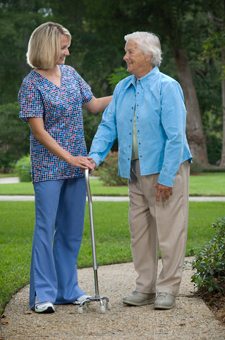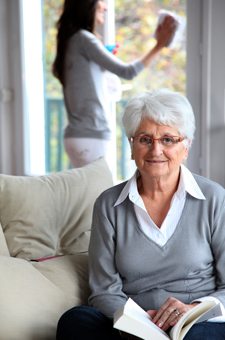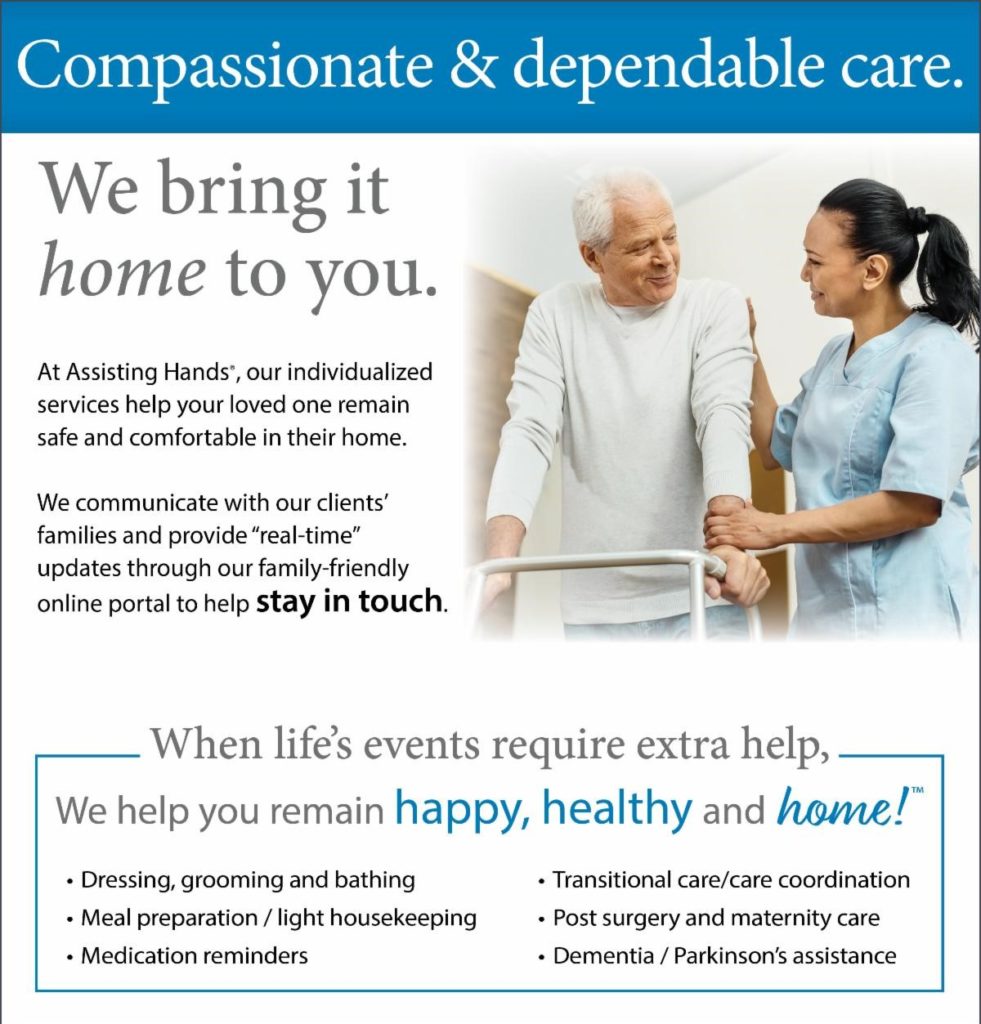When cozying up all day at home becomes the norm for seniors, family members have a right to be concerned. Based on research conducted by the Journal of the American Geriatrics Society in 2017, seniors’ lifespans diminish in accordance to how seldom they leave the confines of home.
What are reasons seniors stay indoors?
 A significant number of elderly individuals find more reasons to stay cooped up indoors than to venture outside. Medical conditions, such as physical problems and cognitive impairments, keep up to 3.6 million individuals over the age of 65 predominantly homebound.
A significant number of elderly individuals find more reasons to stay cooped up indoors than to venture outside. Medical conditions, such as physical problems and cognitive impairments, keep up to 3.6 million individuals over the age of 65 predominantly homebound.
Physical conditions, such as weakness, poor balance and mobility issues, trap seniors inside. Cognitive decline, which may be due to dementia and other memory disorders, and mental health issues, also contribute toward seniors’ partiality to remaining indoors. Without social support, the elderly remain isolated at home.
What problems stem from remaining at home?
Major wellness problems are associated with spending excessive time homebound. Challenges include feelings of loneliness, depression and isolation. These seniors experience difficulty engaging in mentally stimulating activities. Social connections become painfully limited. Receiving timely medical care is also a hurdle.
A direct repercussion of seniors remaining within closed doors too often is that they experience a severely diminished quality of life. The most disastrous outcome is that these individuals’ lifespans are cut short. Seniors, however, tend to live longer when they increase the quantity and quality of their life activities.
How can homebound seniors improve their situation?
 Staying active, even for individuals with impaired mobility, significantly impacts seniors’ rates of survival. Keep in mind, however, that chatting on the phone, inviting friends over or engaging in social media fails to replace physically venturing out of the limited spaces of one’s home.
Staying active, even for individuals with impaired mobility, significantly impacts seniors’ rates of survival. Keep in mind, however, that chatting on the phone, inviting friends over or engaging in social media fails to replace physically venturing out of the limited spaces of one’s home.
A range of senior-friendly features and support services in the community help older people experience a breath of fresh air more often. Senior centers offer classes and fun programs. Volunteer organizations welcome the contributions of seniors. Faith organizations’ doors are always open to older members.
Expanding a senior’s horizons requires support from caring individuals. When family members are unable to provide continual assistance throughout the day, professional caregivers are an effective substitute. With daily social support, seniors can avoid the dreariness of being stuck at home.
How do seniors find transportation?
Lighthearted games, like bingo or bunco, at the senior center are an irresistible draw for many older people. Getting to these events on their own is a challenge, especially if the seniors are reluctant to drive. Poor health does not have to restrict seniors from participating in such accessible activities.
Senior transportation may be found via local volunteers from faith groups or nearby friends. When public transportation is too difficult to navigate for seniors with physical impairments, getting a ride to a social event or doctor’s appointment is as easy as notifying a professional caregiver.
How do seniors receive mental stimulation?
 The progression of brain diseases, such as Alzheimer’s and other forms of dementia, can be slowed by exercising the mind. Seniors who frequently experience sensory stimulation, especially by absorbing the sights and sounds of the outdoors, are less prone to cognitive decline.
The progression of brain diseases, such as Alzheimer’s and other forms of dementia, can be slowed by exercising the mind. Seniors who frequently experience sensory stimulation, especially by absorbing the sights and sounds of the outdoors, are less prone to cognitive decline.
Gardening attracts many people well into their mature years. Digging in the earth is an excellent excuse to take in the sun’s rays and breathe fresh air. Plus, the physical activity that results from sticking a spade into a garden bed helps seniors stay flexible, fit and healthy.
Companion caregivers will help elderly individuals into the yard if they feel unsteady on uneven ground. Seniors with a green thumb anticipate the chance to take trips to the local botanical garden, for instance, when a family or companion caregiver accompanies them.
How do seniors stay physically fit?
Frail individuals may fear falling. But lazing in the rocking chair all day leads to physical inactivity and boredom—both components of ill health in seniors. Companion caregivers provide the physical and emotional support that enable weaker seniors to participate in healthy exercise habits.
Daily walks in the backyard or park are facilitated by companion caregivers who ensure their care recipients’ steadiness and confidence on pebbled paths. When the senior uses a wheelchair, a caregiver is instrumental in helping them enjoy the natural scenery on wheelchair-accessible trails.
Equally important is fueling up for senior group classes, like yoga or tai chi. Seniors who lack the motor skills to cook nutritious meals have ample assistance from their companion caregivers. These professionals whip together balanced meals to energize seniors for the event-filled day ahead.
How do seniors complete their ADLs?
Getting out of the house requires preparation, such as grooming and dressing. Seniors with cognitive impairments or mobility issues may experience impediments in their abilities to handle such tasks. Companion caregivers, however, are trained to discreetly help older adults maintain their daily hygiene.
Assisting Hands Home Care
A new lease on life is possible for seniors with the help of compassionate caregivers from Assisting Hands Home Care Richmond. With a team of dedicated companion caregivers, our elder care recipients have full confidence in their abilities to venture outdoors and continue to experience the best life has to offer.

Assisting Hands Home Care Richmond companionship services also include support with personal care activities, such as grooming, bathing, grocery shopping, meal preparation and light housekeeping. We offer comprehensive home care options to ensure your elderly loved one is nourished, revitalized and supported every day.
Staying invigorated through light physical activities and emotionally recharged through pleasant social opportunities leads to greater chances for a longer lifespan for many seniors. Companion caregivers from our home care agency deliver this necessary, daily support to individuals in our care.
Customized, flexible care plans developed by staff at Assisting Hands Home Care are designed to meet all of your loved one’s unique physical and emotional needs. Families and their aging relatives in Richmond, Virginia, find unwavering elder care support from the area’s most trusted senior care agency, Assisting Hands Richmond.
